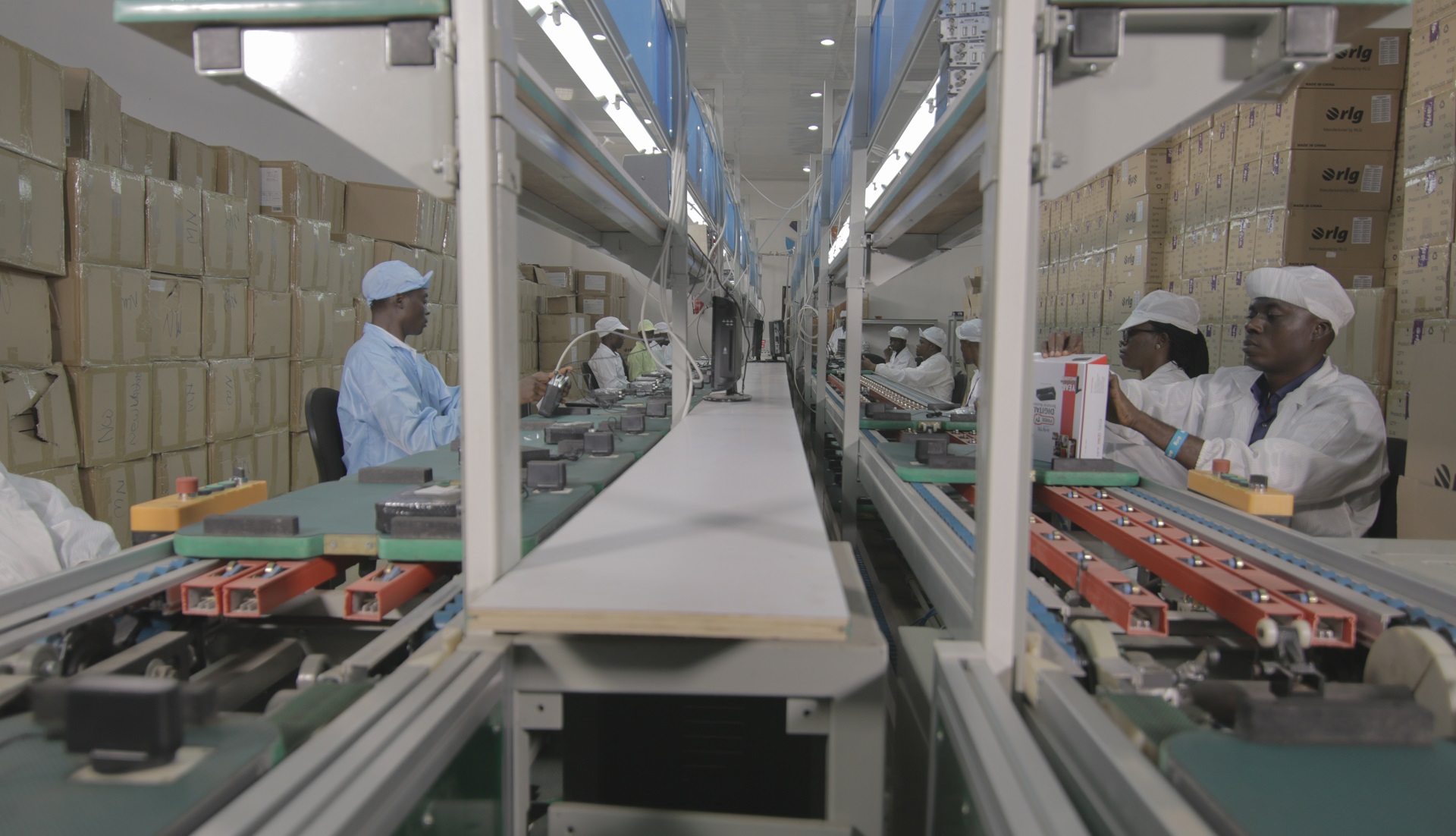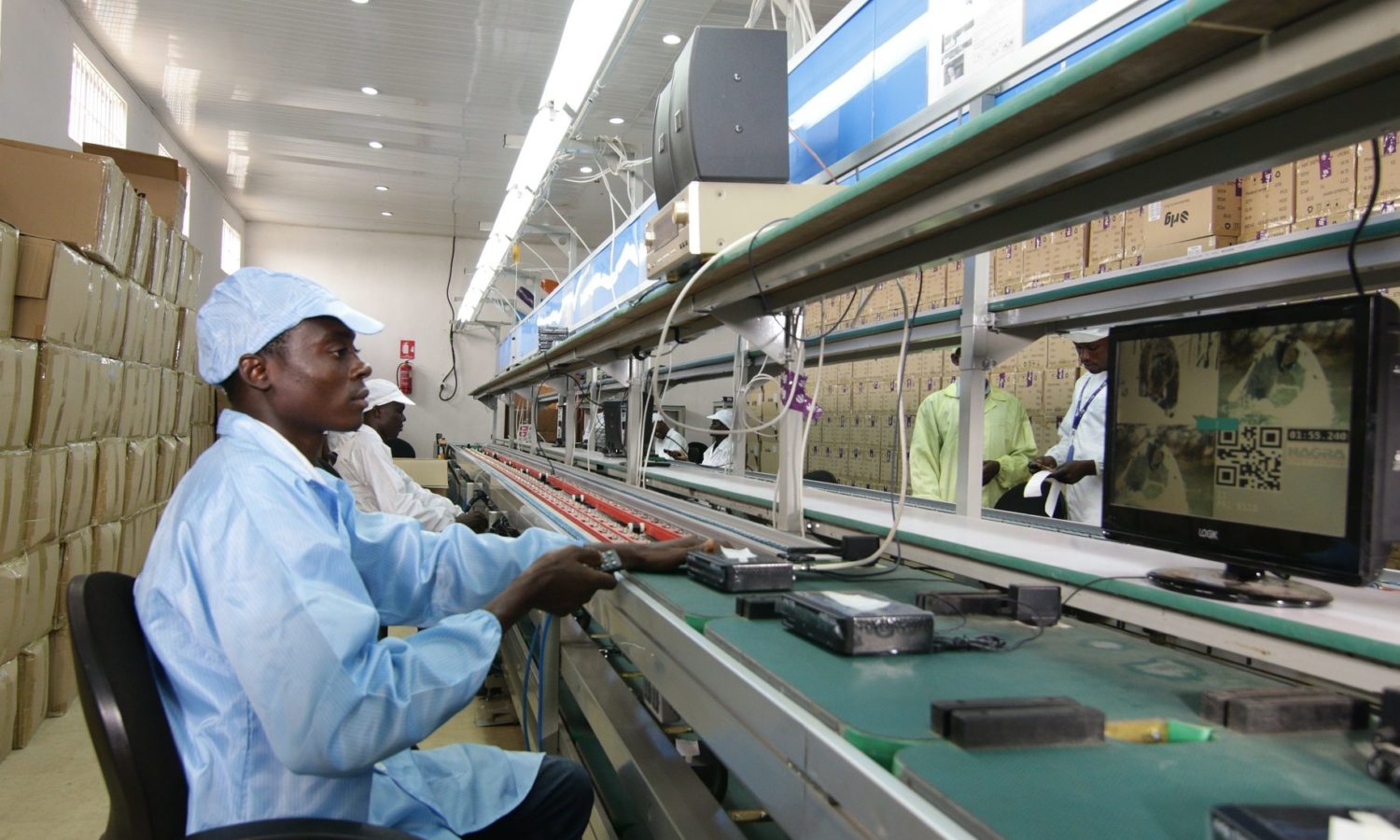
Rlg: Boosting Local Content Manufacture in IT Devices
When the management of Rlg Communications, a Ghanaian based OEM, with operations in Gambia, first announced its intention to build and operate mobile phone and computer assembling plants in Nigeria, technology reporters were not convinced, thinking it was just promise as usual.
Indeed, several other foreign OEMs have promised Nigerians of setting up assembling plants in the country to boost employment and local content development, and ended up not doing so.
Nigeria controls the largest chunk of OEM business. The likes of Nokia, Samsung among others, make volumes of sales in mobile phones, hence they could afford to introduce more than five brands of their products in every quarter. In the area of computer manufacturing, foreign brands like HP, Lenovo, Acer, among others make good sales from their products that are manufactured and assembled outside the country, and they even make more sales than local computer manufacturers like the Zinox, Omatek, Brian, SpeedStar brands, because Nigerians still believe more in foreign brands than the local brands.
It is for this reason that government, in collaboration with local OEMs, started canvassing for local patronage and local content development. Although the campaign is still on, but it has created little or no impact, as Nigerians still patronise foreign brands of computers at the detriment of locally assembled ones.
Based on the ugly situation on ground, Nigerians have been clamouring for the establishment of manufacturing and assembling plants in the country, in order to create employment and boost local content development. The clam our only yielded result on January 30, 2014, when Governor Rauf Aregbesola of Osun State unveiled the state-of-the-art rlg assembling plant, for mobile phones and computers.
The Journey
Chairman of Rlg Communications, Mr. Roland Agambire, first concluded its visibility study on Nigeria to train local hands in mobile phone and computer manufacturing and assembling in 2011. He approached various state governments in the country with his initiative, and Governor Aregbesola saw the opportunity in the initiative and quickly welcomed Agambire and his team.
In 2012, the deal to train the first 5,000 people was struck and nine training centres were opened for that purpose. The training skills cut across both educated and none educated and they were trained for 8 months as against the initial 6 months training plan. At the end of the training, exam was conducted and 200 did very well and they were taken to Ghana for further training.
Setting up the Plants
Conducting ICT Editors on a facility tour of the assembling plants for mobile phones and computers, Country Director, Rlg Communications, Mr. Tosin Ilesanmi, said the company was further attracted by business opportunities it saw in Osun State, aside the warm reception given to the company by the governor.
The opportunities include, the huge market potentials for mobile phones and computers, the trained manpower skills, relatively stable electricity supply, and the reception of the communities. The opportunities, according to Ilesanmi, further attracted Rlg to consider building assembling plants for the manufacturer of Rlg brands of mobile phones and computers.
“Apart from stable light, we saw a market in ‘Opon Imo’, which is the state’s Tablet of Knowledge in empowering students of the state. Rlg could involved in the local production of ‘Opon Imo’ to boost student learning, as well as empowering civil servants with technology, and eGovernance. All these are the opportunities that made us to deepen our projects beyond training,” he said, adding that three universities have written Rlg to align their school curriculum with practicals that will be tapped from rlg plants.
Few months later, the deal to build a assembling plants in Nigeria was reached and in 2013, Agambire announced in Lagos, his intention to build assembling plants for the mobile phones and computers in Ilesa, Osun State.
The first questions raised was why Osun State and not Lagos? For Agambire Osun State became the preferred location because of the business opportunities he saw, coupled with the warm reception the governor and the community gave the company.
Financial Cost
According to Ilesanmi, it cost Rlg over $50 million to complete the plants, with equipment alone costing over $10 million. The company had support from financial institutions like Wema Bank, which has been designated as official partner. Another partner is the Osun State Investment Company Limited (OSICOL), which provided the beneficiaries that were trained as well as the land on which the plants were established. The construction was done by a local contractor in Nigeria and they were built to specifications and standards that still impressed the management of Rlg.
Production Lines
The assembling plants consists of two production lines for mobile phones and laptops, as well as training centre, R&D laboratory and a staff quarter, all in one compound.
It also has Enterprise kiosks built with solar panels, which would be given to those that have been trained. The enterprise kiosks are part of Rlg’s empowerment scheme, Ilesanmi said.
According to him: “The enterprise people with the enterprise kiosks, can repair any other phones other than rlg and make a living from it.”
Production Capacity
The mobile phone plant, which have since commenced production, has the capacity of producing 5,000 mobile phones per day. The computer plant has the capacity to produce 2,500 computers per day for a full capacity production.
Even with the current volume of production, Ilesanmi said a single plant would not be enough to meet the needs of Nigerian mobile phone and computer customers.
Given further details of its production capacity, Ilesanmi said since the plant could produce only 5,000 in a day, which translates to 150, 000 in a month, and that the its five distribution centres consume 500, 000 pieces of mobile phones in a month, then Nigerian needs more manufacturing and assembling plants in the country, in order to meet the high demand of customers.
“We need a minimum of five additional assembling plants located in Nigeria, to be able to serve the over 190 million mobile lines in the country,” Ilesanmi said.
He equally called for converged assembling plants to be located in Nigeria so that up to 60 per cent of locally assembled mobile phones and computers could be achieved in the country.
Local Content
Speaking on the local content development initiative in setting the rlg assembling plant in Nigeria, Ilesanmi said the plants were built by local contractors, and that local indigenes were selected for the first batch of 5,000 people that were trained in Nigeria and Ghana. Most of the production materials would be sources locally, while its staff strength, which is currently over 100, were drawn locally.
Plans for 2014
Rlg, according to Ilesanmi, would enter into the manufacturing of high-end phones with several functions, apart from its feature phones and the smart entry level phones. We will allign with the market trends, and we want major operators to key into the idea if boosting local content.
Rlg has done what other foreign OEMs could not do and should therefore be commended by Nigerians, not just the people of Osun State.



No Comments :